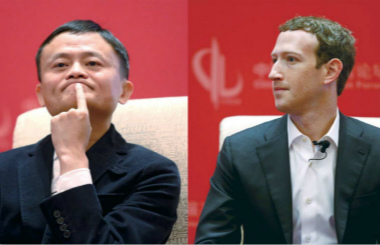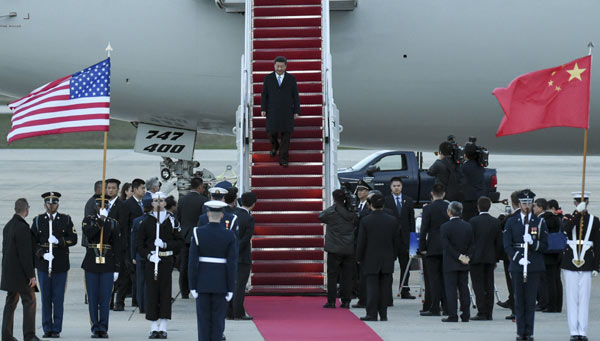Xi-Obama bilateral talk to advance ties
Updated: 2016-03-31 09:48
By CHEN WEIHUA in Washington(chinadaily.com.cn)
|
|||||||||
President Xi Jinping and US President Barack Obama will meet Thursday afternoon on the sidelines of the fourth Nuclear Security Summit (NSS) in a bid to expand cooperation and manage differences between the two super powers.
Xi arrived at the Joint Base Andrews in Maryland on Wednesday evening from Prague, Czech Republic, where he paid a three-day state visit. Prague was also where Obama made his speech about a nuclear-free world on April 5, 2009, which led to the birth of the first NSS in Washington in 2010.
Both Chinese and American officials and experts hope the meeting, the eighth between the two presidents since 2013, will help keep bilateral relations on a healthy track.
Cheng Li, director of the John L. Thornton China Center of the Brookings Institution, praised Xi's visit despite growing tension in the South China Sea. Many Chines believe that disputes over maritime territories between China and some of its neighbors have become more complicated in recent years because of US involvement.
Li said a high-level meeting is important in building trust. "I always believe that the problem between China and the US is not ideology or interest, but miscalculation," he said.
He hoped that Xi and Obama will reach some agreement on the South China Sea issue.
Jeffrey Bader, a senior fellow at Brookings in Washington and a principal adviser for Obama on Asia from 2009 to 2011, described Obama's only bilateral meeting during the summit that will be attended by 50 plus heads of state and government as "a sign of respect" for Xi and an indication of how important Obama considers the US relationship with China.
He believes the meeting is likely to focus a good deal on the South China Sea, saying there is concern in Washington and the region about how China might react, beyond formal rejection, to a decision by the International Tribunal in April or May regarding the Philippine complaint on the UN Law of the Sea (UNCLOS).
Today's Top News
Once-endangered pony makes comeback
Bookshop worms way into community
A fresh start
Bookshops reinvent themselves
Xi-Obama bilateral talk to advance ties
Foreign companies reassured on new Internet rules
Beijing and Prague form new key link
Trump drops pledge to back Republican nominee
Hot Topics
Lunar probe , China growth forecasts, Emission rules get tougher, China seen through 'colored lens', International board,
Editor's Picks

|

|

|

|

|

|







